Year 8 – Classical Studies
Home › Forums › Inquiry and resource design › Year 8 – Classical Studies
- This topic has 5 replies, 3 voices, and was last updated 5 years ago by
 Richard Breag.
Richard Breag.
-
AuthorPosts
-
22nd December 2020 at 8:37 pm #33101
As has been discussed elsewhere in this forum, inquiry and MFL are not the most obvious of bed-fellows and an inquiry-based approach to language learning actually means something quite different from that approach in other subjects. It has therefore been a pleasure to introduce FOSIL, and the real value it has in building knowledge and understanding, to a languages teacher faced with transferring his extensive teaching skills into a new, and quite different subject area – the world of the Ancient Greeks and the Year 8 Classical Studies course.
Thus far, we have worked our way through the Greek Gods, the Ancient Olympics and the Odyssey with Thermopylae awaiting us in the new year. Resources created to assist pupils, especially as they have neared the end of each topic and have needed to bring everything they have covered together to CONSTRUCT their understanding are available to download from the Resources section, and I will let Richard add more about his experiences in response.
31st December 2020 at 5:15 pm #33473As Lucy mentions, teaching Classical Studies to Y8 is very different to teaching French and Italian at KS 3, 4 and 5.
Having the opportunity to teach something new has been different, interesting, fascinating and has certainly necessitated a “refocussing” of my approach to teaching and learning. The age of teaching content to students and expecting them to reproduce it for the sole purpose of passing an exam is a so outdated and yet is still the staple of many classroom up and down the land. FOSIL however, couldn’t be more different. Getting students to internalise knowledge and to become the true masters of their learning through discussion, construction, expression and reflection is a real breath of fresh air. It is like teaching in a classroom that is light years ahead of what we have been used to. The levels of engagement that we have seen and the sheer excitement and enthusiasm that we have witnessed from a class that was not billed as being any of these things, has been truly reinvigorating and I should like to thank Lucy for helping us to develop some excellent resources and look forward to continuing this collaboration.
6th January 2021 at 1:39 pm #33701Discussing and developing resources for our Classical Studies course with Richard has been really useful for me in figuring out what it is that teachers really want their pupils to get out of a topic and then working backwards from that point to help them get there as successfully as possible. While this has always been my approach, it has usually been focused around something concrete like the EE or IRP which come with relatively strict guidelines, or around inquiries that we have been developing and steering towards our own objectives.
In the case of this course, the overarching aim is to develop an interest in the Classical World along with an awareness of the ways in which the Ancient Greeks have shaped modern society. With this in mind, our first collaboration on a lesson planning, rather than background discussion level, focused on what the Ancient Olympics were and what they stood for – as this was what we had identified as the desired outcome. To this end, the Construct sheet we developed used criteria decided upon by the pupils in the Connect and Wonder Stages – what they already knew about the Ancient Olympics or wanted to know – as this allowed them to consolidate the work they had done in class – and provided an opportunity to consider what they knew about the Ancient Olympics against the modern version of the games, which was probably more relevant to their own lives – especially after the disappointment of the 2020 Games being postponed.
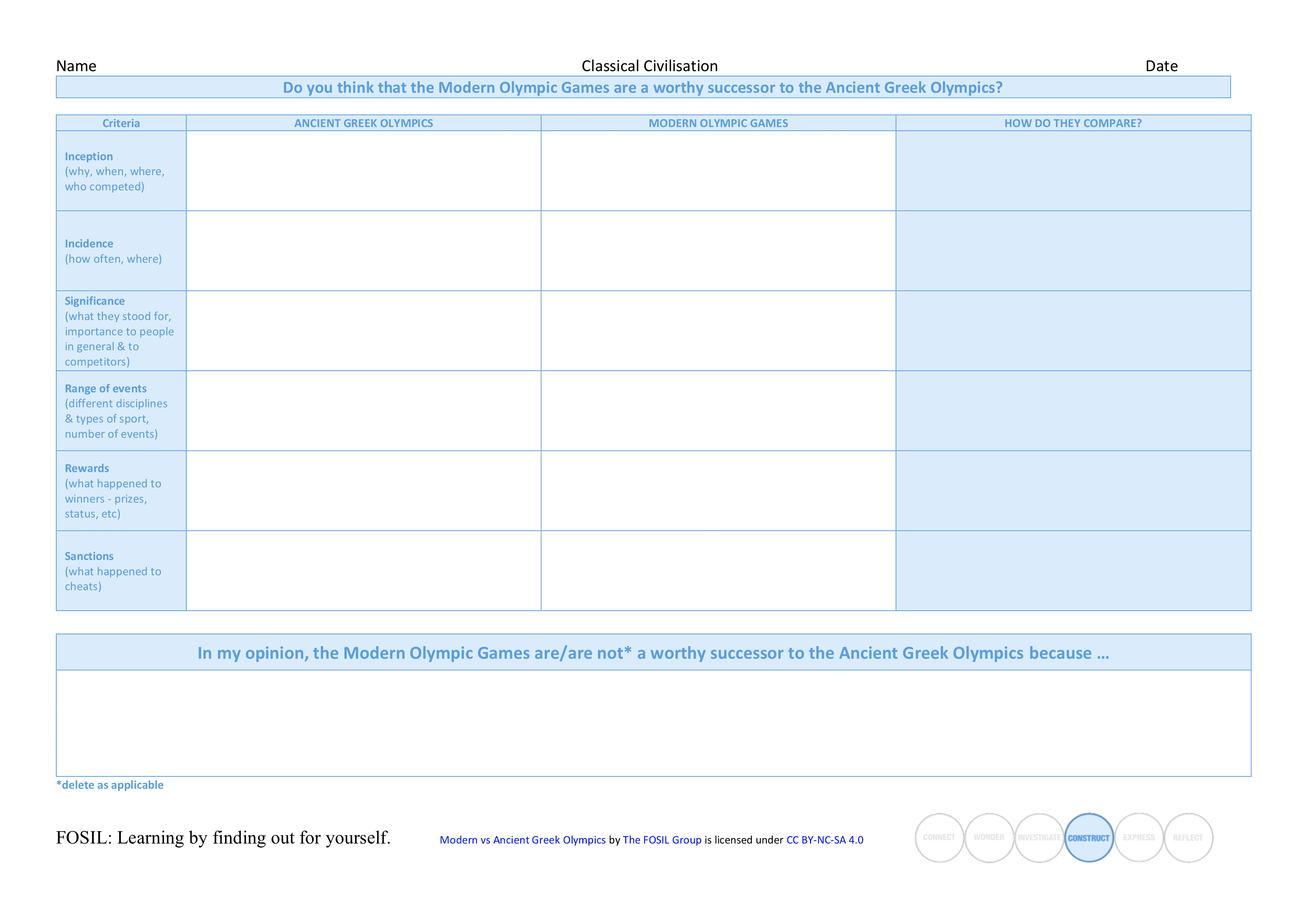
This comparison proved quite challenging for some pupils and made us realise that they perhaps needed more time to consider the comparison and what it meant than they had been allowed – or perhaps more assistance in the build up would have been a good idea.
As a result, the next topic on which we collaborated, once pupils had explored Odysseus’s journey home from the Trojan War in The Odyssey, provided them with the opportunity to go back to the journey to identify different episodes and Odysseus’s behaviour at that part in the story, before asking them to consider whether he fitted the image of an Ancient Greek hero (a topic from earlier in the course). We therefore developed two resources to steer pupils towards the desired outcome. Adding this extra step had a very positive effect on the outcome and on pupils’ general response to the chaotic, and predominantly remotely experienced, end to the topic. It also gave us food for thought over the holidays as we looked ahead to the warfare topic.
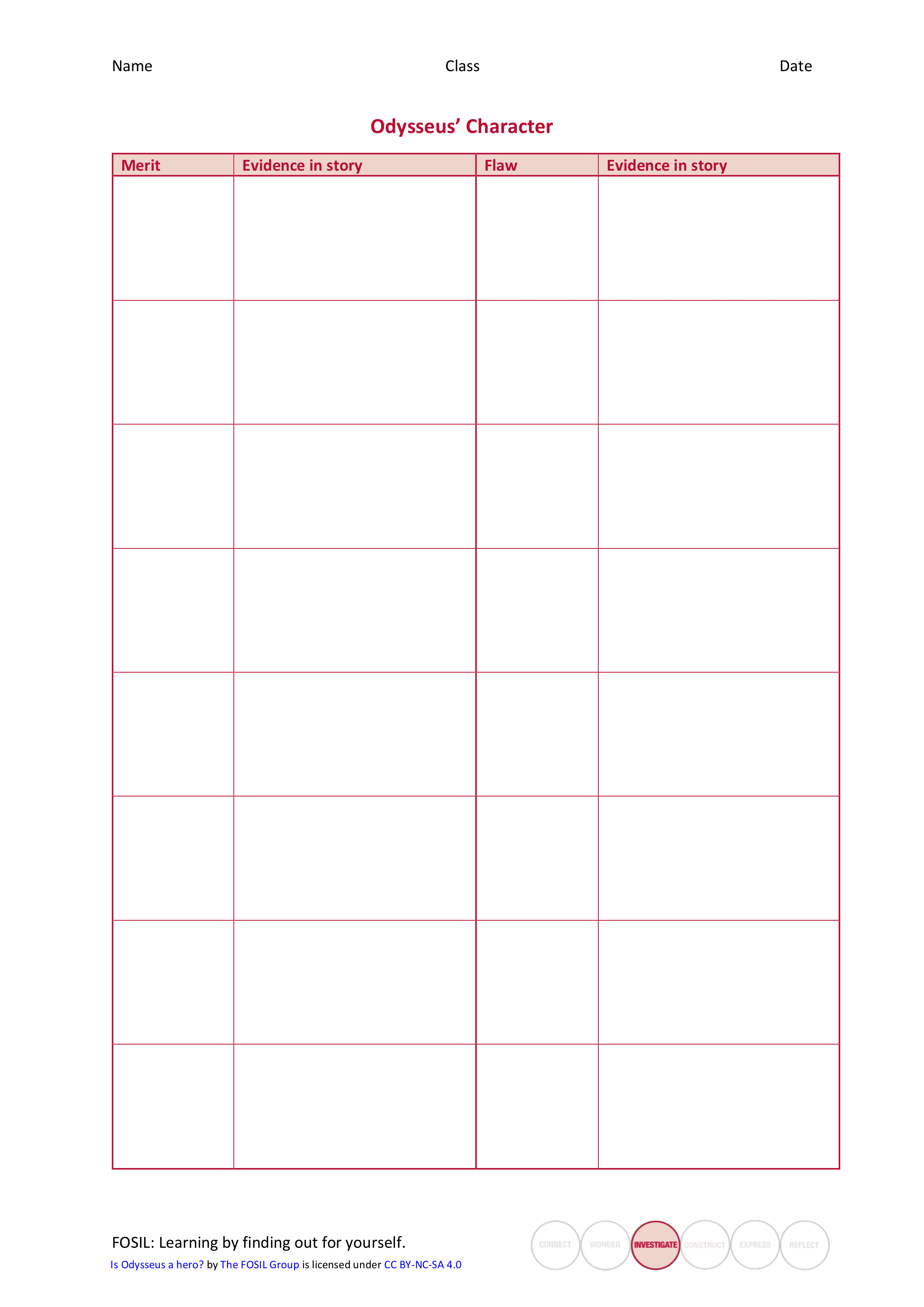
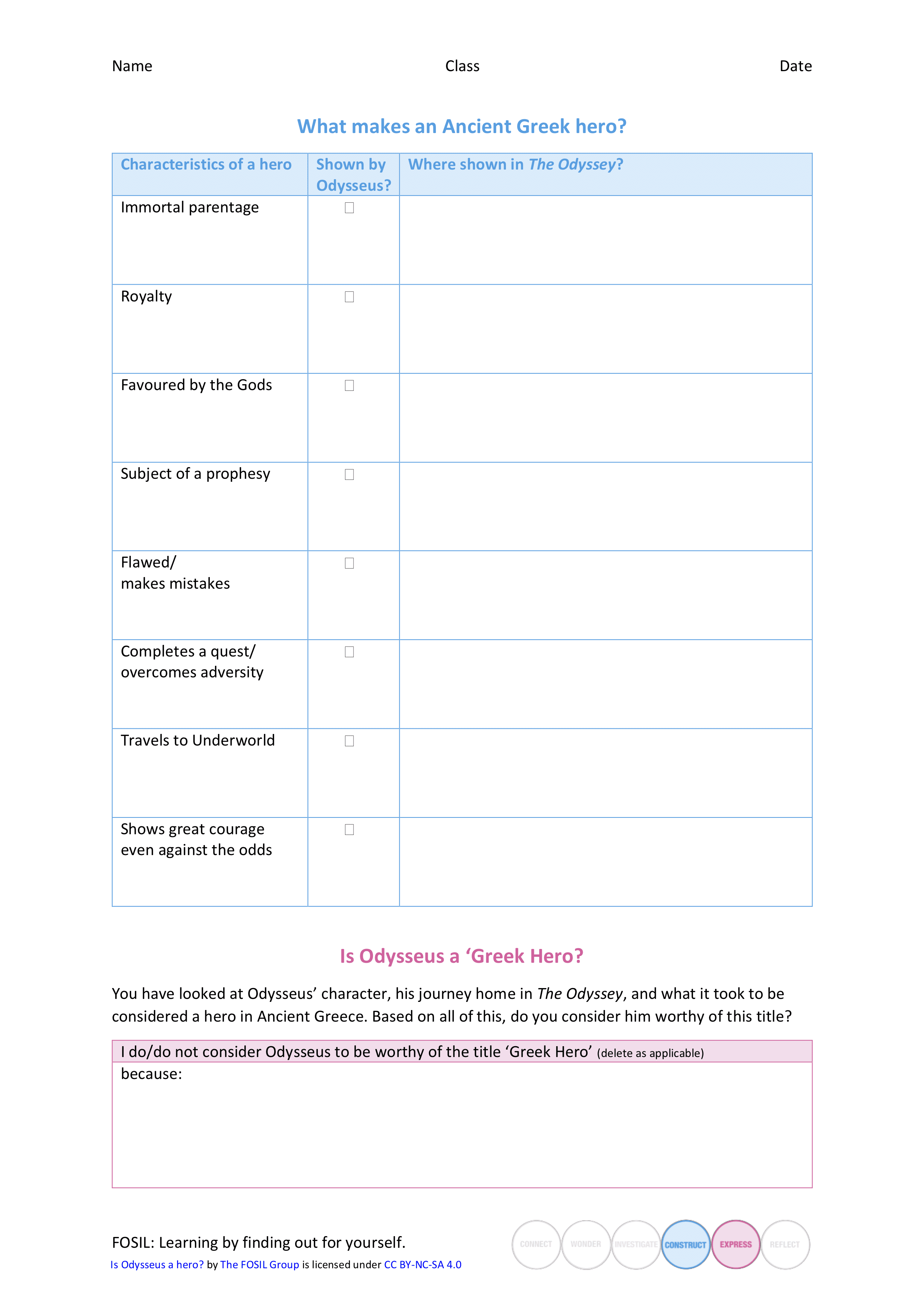 14th January 2021 at 2:19 pm #34364
14th January 2021 at 2:19 pm #34364Deciding on the end point and then working back has always been my approach to teaching; but I have found that by using the FOSIL framework I have become more ambitious with what I would like the students to achieve. Not necessarily in terms of content (indeed I find myself removing some of the content) but in terms of the way in which I would like them to use and apply their knowledge. I have also noticed that using FOSIL seems to be a good way of reducing cognitive load, which I also feel the students really appreciate. The students find themselves better able to focus on what it is they need to know and become more interested in the how and why rather than the what. It is early days of course, but I am now really looking forward to applying FOSIL to language teaching and am relishing the prospect of doing so. Encouraging students to use their higher-order skills, certainly seems to ensure that what they have been taught sticks that much better.
15th January 2021 at 12:01 pm #34420Thanks, Richard.
Time permitting, further thoughts on how FOSIL might reduce cognitive load would be interesting and useful.
Your comments on higher-order skills reminded me of Barbara Stripling’s REACTS Taxonomy, which she and Judy Pitts developed at the same time as their Research as a Thinking Process model in 1988. The REACTS Taxonomy of thoughtful research reactions remains relevant and is available to download here from the Empire State Information Fluency Continuum LibGuide.
While an individual inquiry can, depending on the circumstances, involve more than one REACTS level, I am working on a project in which the inquiry progresses through each of the 6 levels of the REACTS Taxonomy as the inquiry progresses through each of the 6 stages of the process. I will share this as soon as I am able.
For reference, I include the 6 levels of the REACTS Taxonomy below:
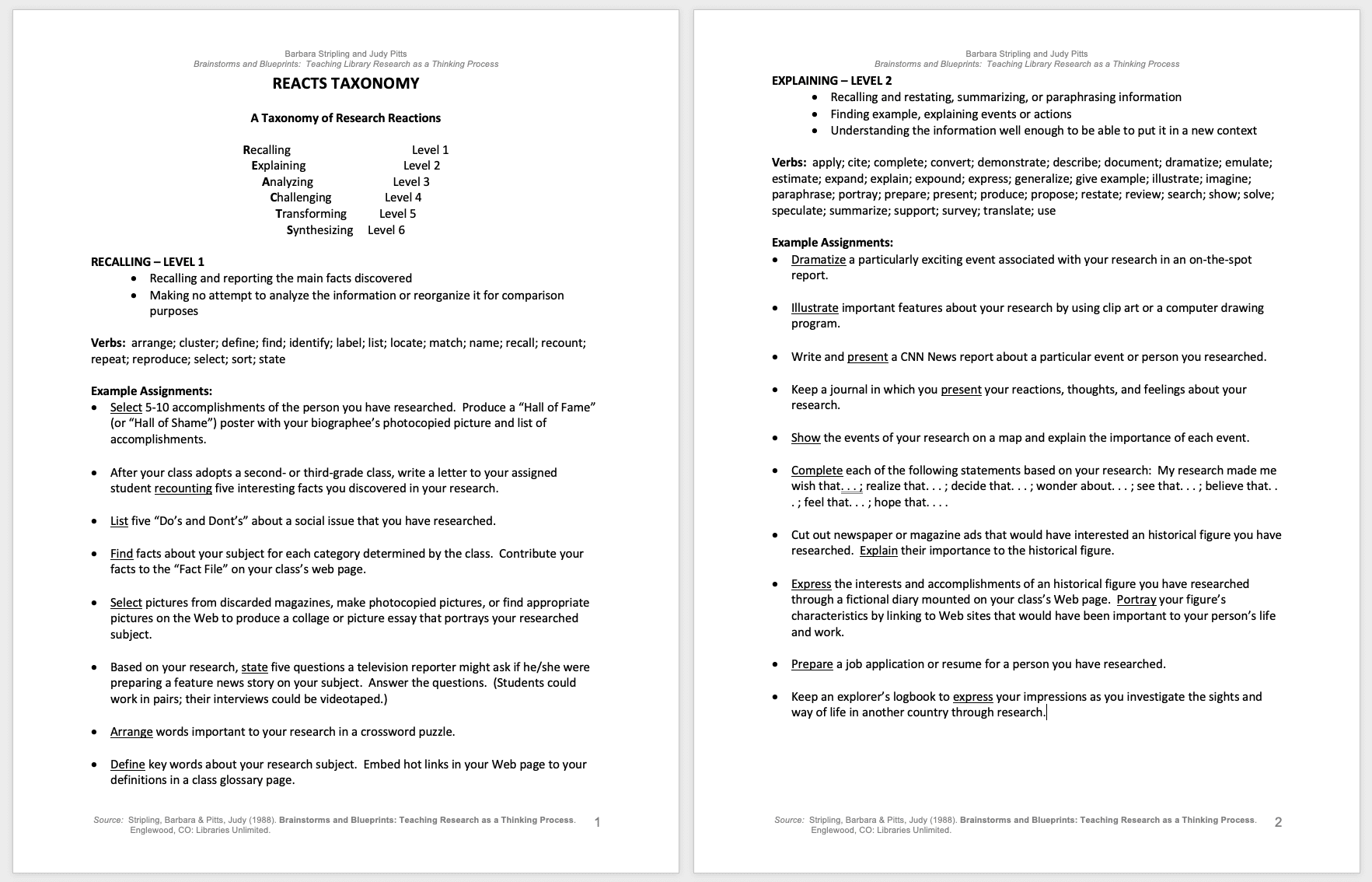
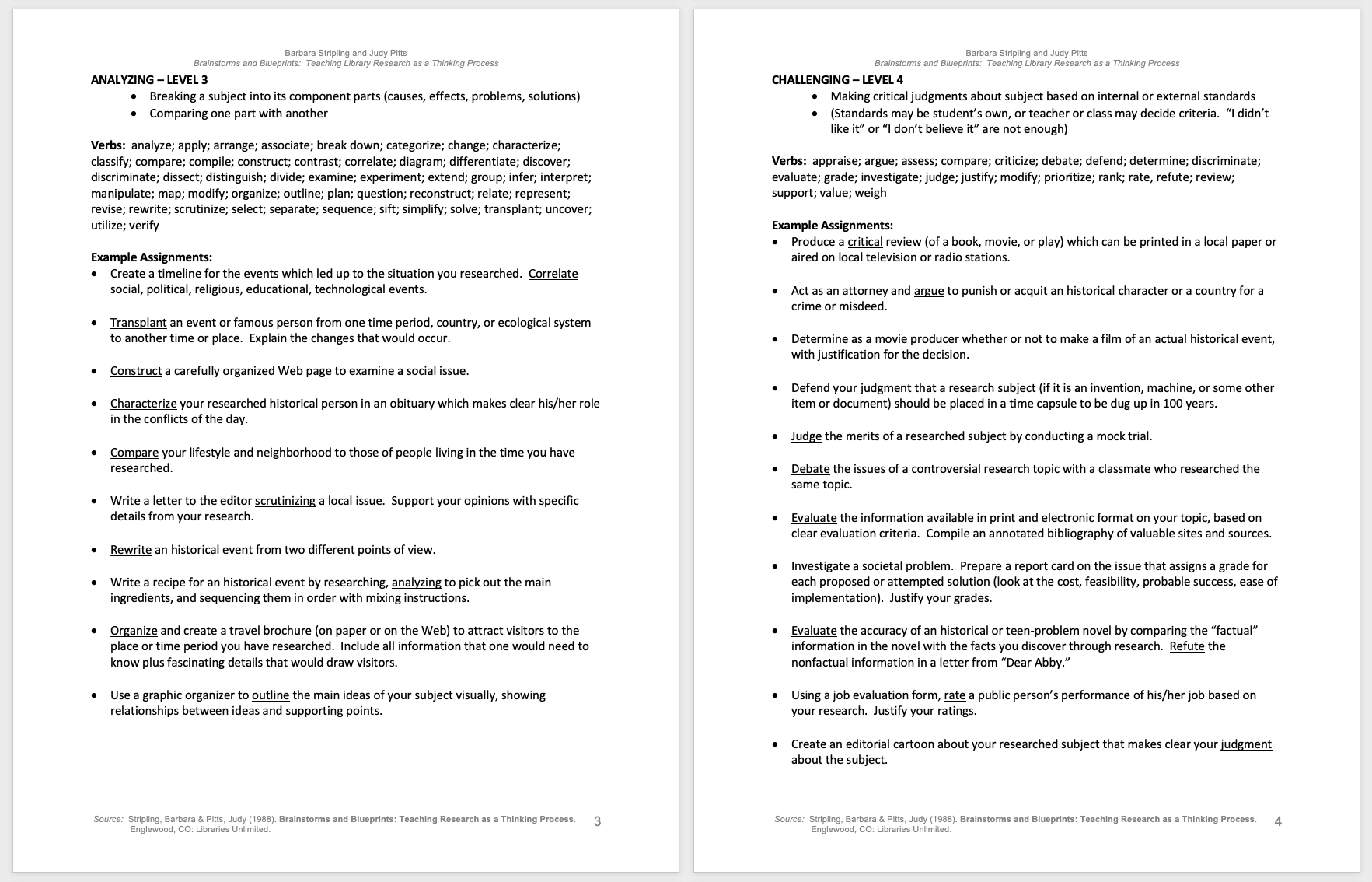
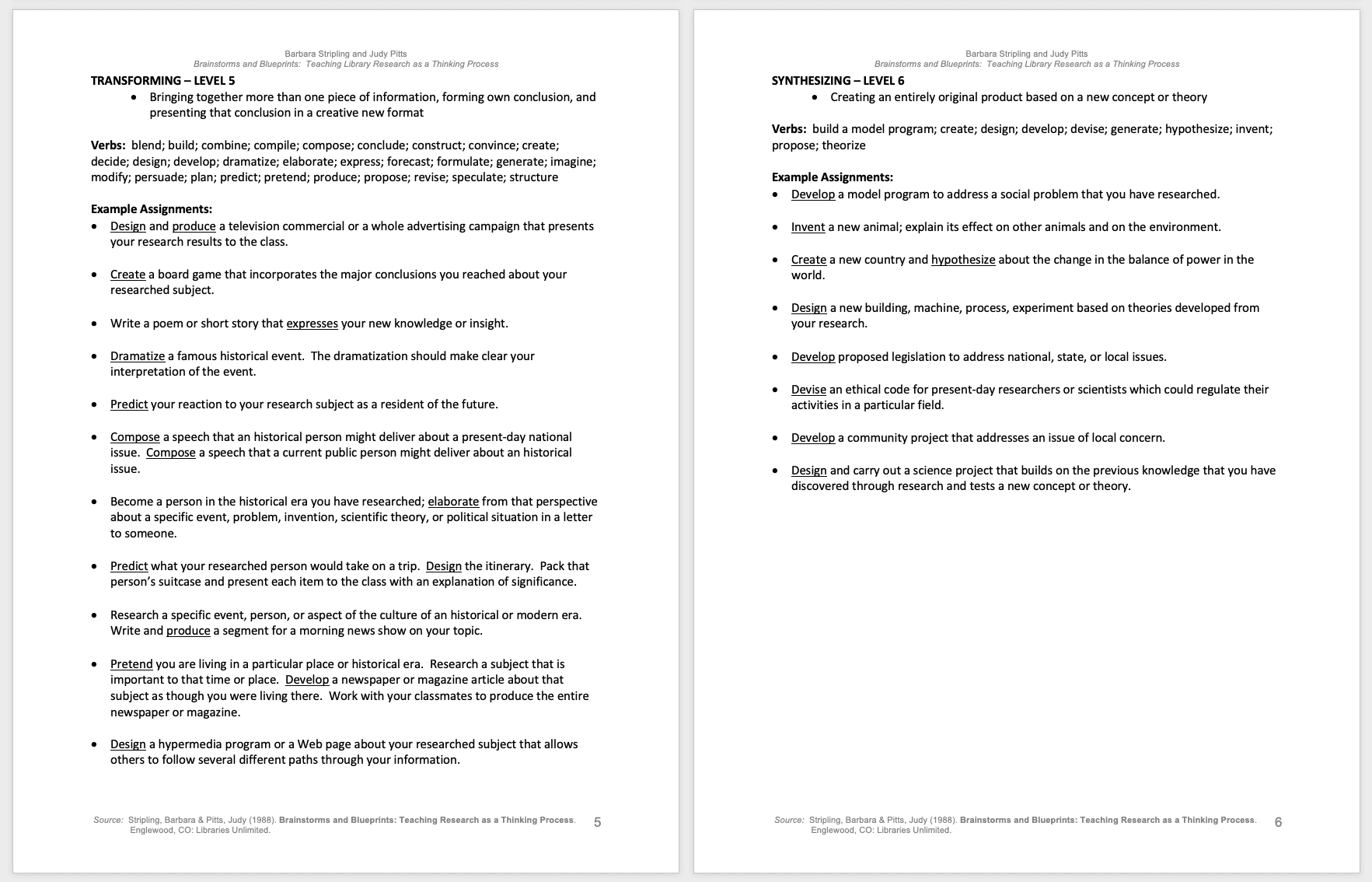 4th February 2021 at 8:47 am #35634
4th February 2021 at 8:47 am #35634Thanks for the REACTS Taxonomy, I found it useful.
With regards to my thoughts on how FOSIL might reduce cognitive load: I think that the great thing about FOSIL is that it really gets you to focus on the essential i.e. what is the essential question or essential questions that the students need to be able to answer. It then gets you to focus on delivering what our students need to know in order to answer the question/s. It also gets you to focus on teaching and learning strategies that make it as easy as possible for students to be able to understand the key concepts. By so doing, you have to question what is necessary and is extraneous. If you can get this right, I think that extraneous cognitive load is reduced significantly and our students have a greater chance of not being distracted and this will help allow the students to get on with genuine learning (germane load). In other words as teachers we need to separate the “stuff from the fluff” and ensure that our students know what the “stuff” is, so that they can disregard the “fluff.”
-
AuthorPosts
- You must be logged in to reply to this topic.


